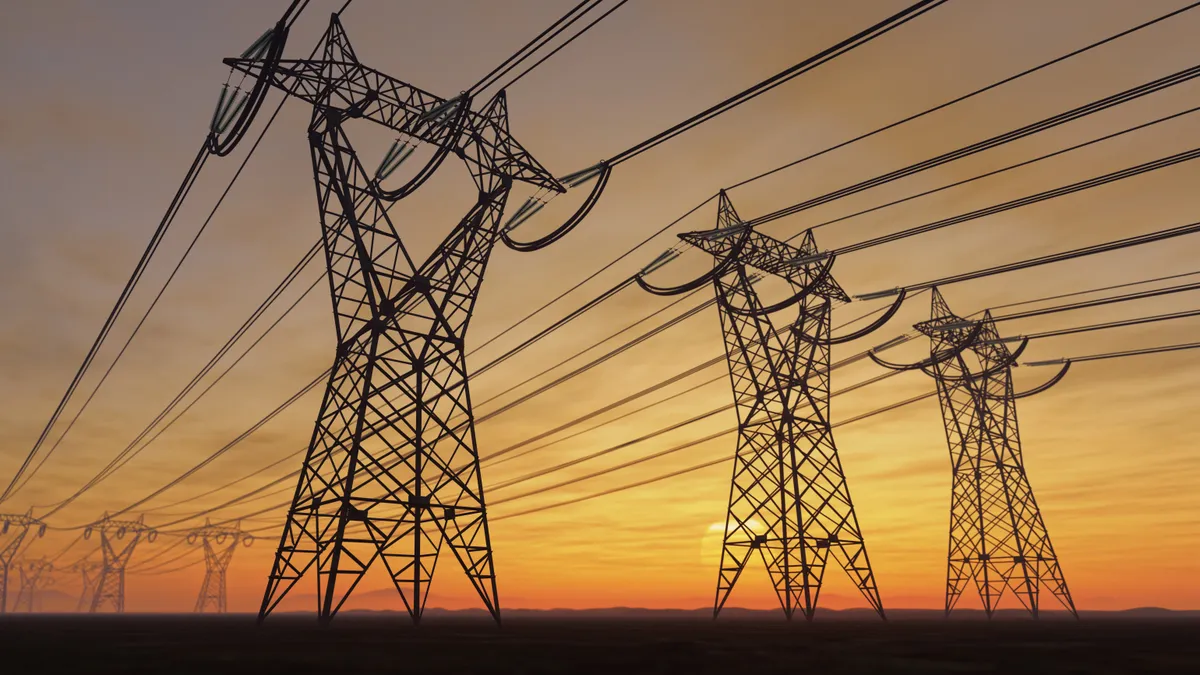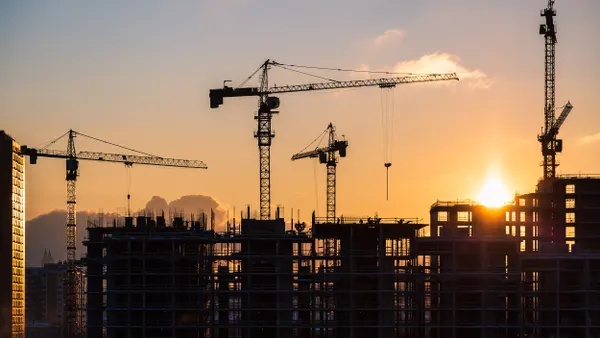Dive Brief:
- Nearly nine out of 10 (89%) of global executives reported experiencing energy-related disruptions in the last year, with most (83%) asserting that power reliability will drive the next major supply chain crisis, according to a report released this week from Prologis, a San Francisco, California-based industrial real estate company.
- With AI use driving power demands, roughly three quarters of the executives surveyed expect power requirements at their facilities to increase by 10-50% over the next five years.
- “Supply chains are going through the biggest reset in a generation, and it comes down to three things: energy reliability, AI and location. The new priority is resilience — building networks that can adapt and endure,” Hamid R. Moghadam, co-founder and CEO of Prologis, said in a statement included in a company press release.
Dive Insight:
Economic volatility (51%), tariff increases and trade policy changes (48%), geopolitical instability and cybersecurity threats (38% each) and energy reliability and cost (33%) were the leading concerns cited by executives as potential 2026 operational disruptions, according to the survey.
Additionally, the survey also highlighted AI adoption and the energy pressure it places on supply chains. AI requires large amounts of energy because training models involve “thousands of graphics processing units (GPUs) running continuously for months, leading to high electricity consumption,” according to an April report from Penn State University’s Institute of Energy and the Environment.
While data centers used 4.4% of U.S. electricity in 2023, that number could triple by 2028, according to Mahmut Kandemir, a professor of computer science and engineering at Penn State, the report’s author. In July, the U.S. Department of Energy said power outages could increase by 100 times by 2030 if suppliers don’t add capacity during peak demand periods. It also warned that AI demand from data centers is accelerating the strain.
Prologis’ research also underscored businesses’ power vulnerabilities. Just 27% of organizations had what it called “advanced power resilience” capabilities, with just over half unprepared for extended power losses, the report found.
“The disconnect between current capabilities and future demands creates a critical vulnerability that threatens operational continuity,” study authors wrote.
The report also pointed to how companies are rethinking supply chain geography. After decades of optimizing for labor costs, 77% of executives said they were building regional, self-sufficient networks. Energy reliability stood out as the top determinant of where they locate facilities, ahead of tariffs and labor costs.
Nearly eight in 10 leaders said they would consider relocating operations after experiencing as few as one to five major outages per year, a sign of how critical energy security has become.
“Energy is the new fault line in global supply chains,” Susan Uthayakumar, chief energy and sustainability officer at Prologis, said in a statement included in a release on the report. “A majority of companies faced energy disruptions last year, and most expect their power needs to surge in the years ahead. The companies that solve for energy resilience will be the ones that stay ahead.”
The report is based on a survey conducted for Prologis, a global logistics real estate firm, in August 2025, including input from 1,816 global executives.















